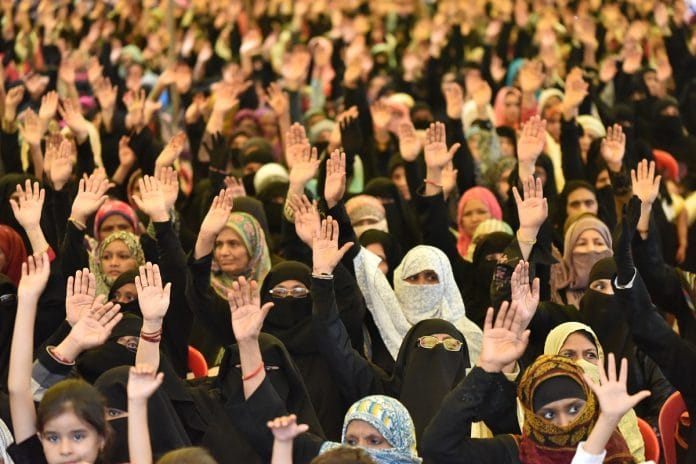BJP wants UCC to ensure gender equality across religions, but panel wants equality between men and women of same communities first.
New Delhi: Stating that the politically sensitive issue of a uniform civil code is “neither necessary nor desirable at this stage”, the Law Commission Friday submitted a consultation paper on family laws in India instead.
The mere existence of religious differences does not imply discrimination, and is instead “indicative of a robust democracy”, the commission has unequivocally noted.
Arguing that it is “discrimination and not difference” which disprivileges women, the commission said: “The best way forward may be to preserve the diversity of personal laws but at the same time ensure that personal laws do not contradict fundamental rights guaranteed under the Constitution of India.”
Also read: Criticism of government, calling country ‘racist’ not sedition, says outgoing Law Commission
Make men and women equal first
As reported by ThePrint, the commission has, in this spirit, recommended that personal laws of various religions be “codified to the greatest extent possible, and the inequalities that have crept into codified law…should be remedied by amendment”.
While the UCC has been strongly backed by the ruling BJP as a way to ensure gender equality across religions, the panel has said: “It is urged that the legislature should first consider guaranteeing equality within communities between men and women, rather than equality between communities.”
Calling for reforms across religions, the commission has stated that codification of different personal laws can help achieve certain universal principles that prioritise equity rather than imposition of a uniform code. Rather than ensuring justice, a uniform code could discourage many from taking legal recourse altogether, given that matters of marriage and divorce can also be settled extra-judicially, it has stated.
Changes recommended in Hindu law
Calling for an abolition of the Hindu Undivided Family (HUF), the commission has said it is “neither congruent with corporate governance, nor is it conducive for the tax regime”. Given that HUF — under which a Hindu family can come together and form a single tax unit — is demonstrably used primarily for tax evasion, “it is understood that justifying this institution on the ground of deep-rooted sentiments at the cost of the country’s revenues may not be judicious”.
The commission has also recommended the abolition of coparcenary (joint heirship), which consists of members who have a right by birth in the joint Hindu family property and have a right to ask for partition of the same. The system, which was extended to female heirs, “has decreased the shares of other Class I female heirs, such as the deceased’s widow and mother, since the coparcenary share of the deceased male from whom they inherit stands reduced”.
Other issues under Hindu law like the restitution of conjugal rights, the inclusion of concepts such as ‘community of property’ of a married couple, and rights of illegitimate children have also been discussed.
Also read: Why Law Commission didn’t submit final report on Modi’s ‘one nation, one election’ goal
Changes recommended in Muslim law
Given that inheritance under Muslim law continues to favour the male child — women only inherit half of what their male counterparts do — the commission has recommended the codification of Muslim law on inheritance in a gender-just manner. The paper has also shed light on the rights of a widow.
All property acquired after marriage of either spouse should be treated as a unit between the couple (called community of self-acquired property), the commission has stated, since it is often women who compromise their careers for familial responsibilities. Since maintenance claims are frequently flouted, Muslim personal law must be amended to introduce this idea.
Other reforms suggested
– The rights of married Parsi women to inherit property must be protected even if they marry outside their community.
– The Juvenile Justice (Care and Protection) Act, 2015, the commission has noted, is inadequate in addressing the judicial questions on adoption. The act must be expanded in order to make it a robust secular law that can be accessed by individuals of all communities for adoption.
– The commission has also asked for the amendment of adoption guidelines, so as to ensure that the procedures are not so tedious as to discourage adoption.
– The prohibition on adoption of a female child by a male too must be reconsidered.
– Also, broadening the scope of the act so as to enable people across genders to adopt children, the commission has recommended the use of the term “parents” in place of “mother and father” in adoption provisions. In order to facilitate adoption of intersex children, the commission has said the word “child” should replace son and daughter.
– Importantly, it is also suggested that the issue of adoption should be seen through a humanitarian and not a religious lens. This is important since Muslim personal law prohibits adoption.







Some very enlightened views coming from the Law Commission.